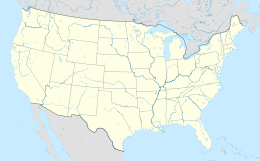125th Street (Second Avenue Subway)
|
125th Street
|
|||
|---|---|---|---|
| New York City Subway rapid transit station | |||
 |
|||
| Station statistics | |||
| Address | East 125th Street & Lexington Avenue New York, NY 10035 |
||
| Borough | Manhattan | ||
| Locale | East Harlem | ||
| Coordinates | 40°48′15″N 73°56′15″W / 40.804259°N 73.937473°WCoordinates: 40°48′15″N 73°56′15″W / 40.804259°N 73.937473°W | ||
| Division | A (IRT) | ||
| Line | IRT Lexington Avenue Line | ||
| Services |
4 5 6 |
||
| Transit connections |
|
||
| Structure | Underground | ||
| Levels | 2 | ||
| Platforms | 2 island platforms (1 on each level) cross-platform interchange |
||
| Tracks | 4 (2 on each level) | ||
| Other information | |||
| Opened | July 17, 1918 | ||
| Station code | 392 | ||
| Accessible |
|
||
| Wireless service | |||
| Traffic | |||
| Passengers (2016) | 9,431,163 |
||
| Rank | 35 out of 422 | ||
| Station succession | |||
| Next north |
149th Street–Grand Concourse (Jerome express): 4 138th Street–Grand Concourse (Jerome local): 4 Third Avenue–138th Street (Pelham): 6 |
||
| Next south |
116th Street (local): 4 86th Street (express): 4 |
||
|
|
|
||
| Next |
161st Street–Yankee Stadium (via Jerome): 4 Third Avenue–149th Street (via White Plains Road): 5 Hunts Point Avenue (via Pelham): 6 |
||
| Next |
51st Street (local): 4 Grand Central–42nd Street (express): 4 |
||
|
|||
|
125th Street
future |
|
|---|---|
| Future New York City Subway rapid transit station | |
| Station statistics | |
| Division | B (IND) |
| Line | IND Second Avenue Line |
| Services | future |
| Structure | Underground |
| Platforms | 2 island platforms (planned) |
| Tracks | 3 (planned) |
| Station code | 472 |
| Station succession | |
|
|
|
| Next |
none: future |
| Next |
116th Street: future |
125th Street is an express station that has four tracks and two island platforms. It is the northernmost Manhattan station on the IRT Lexington Avenue Line of the New York City Subway. Located at Lexington Avenue and East 125th Street (also known as Dr. Martin Luther King, Jr. Boulevard) in East Harlem, it is served by the 4 and 6 trains at all times, the 5 train at all times except late nights on weekdays, and the <6> during weekdays in peak direction.
A planned northern extension of the Second Avenue Subway would connect with this station and with the Metro-North Railroad's Harlem–125th Street station, located one block west.
This station opened on July 17, 1918 as part of the extension of the original subway up Lexington Avenue to 125th Street and into the Bronx. Initially, service was provided only as a shuttle on the local tracks of the then-formed Lexington Avenue Line between Grand Central, continuing past this station and under the Harlem River to 167th Street on the IRT Jerome Avenue Line. On August 1, 1918, through service on the Lexington Avenue Line began. Both express trains and local trains began stopping at this station, running from Lower Manhattan and Brooklyn. The extension from Grand Central cost $58,000,000.
The opening of this station resulted in development in the surrounding neighborhood of East Harlem.
In 1952 or 1953, a public address system was installed at this station, providing information to passengers and train crews.
...
Wikipedia




